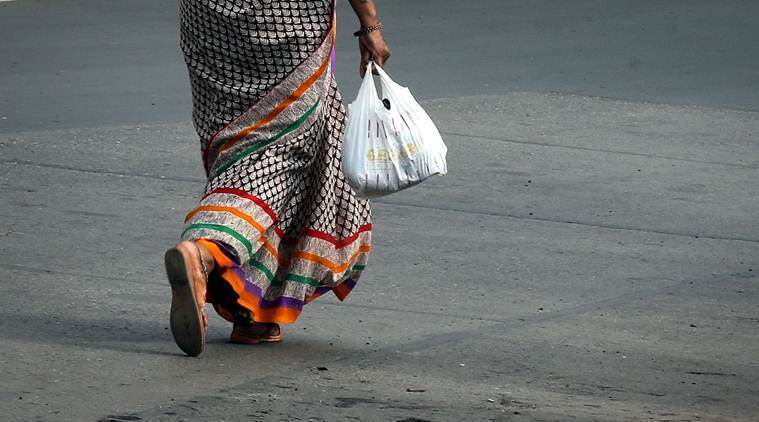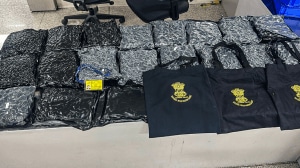Stay updated with the latest - Click here to follow us on Instagram
Plastic Pollution: Pune scientists discover fungi strains that degrade polythene
India generates more than 25,000 tonnes of plastic waste every day, 40 per cent of which remains uncollected. In 60 major cities of India, an estimated 4,059 tonnes per day of plastic waste is generated every day, data obtained from the Central Pollution Control Board (CPCB) states.
 Researchers, led by Avinash Ade at Savitribai Phule Pune University, have published a paper in Scientific Reports, identifying fungi that can potentially degrade polythene. (File Photo)
Researchers, led by Avinash Ade at Savitribai Phule Pune University, have published a paper in Scientific Reports, identifying fungi that can potentially degrade polythene. (File Photo)
Three scientists from Pune University have identified fungi which can potentially help degrade polythene and emerge as an answer to the plastic pollution crisis.
India generates more than 25,000 tonnes of plastic waste every day, 40 per cent of which remains uncollected. In 60 major cities of India, an estimated 4,059 tonnes per day of plastic waste is generated every day, data obtained from the Central Pollution Control Board (CPCB) states. According to various researchers, it takes about 1,000 years to decompose a PET bottle in natural environmental conditions.
Researchers, led by Avinash Ade at Savitribai Phule Pune University, have published a paper in Scientific Reports, identifying fungi that can potentially degrade polythene. The paper was published in March.
The research team, including Manisha Sangale (Savitribai Phule Pune University) and Mohd Shahnawaz (currently, with CSIR-Indian Institute of Integrative Medicine, Jammu), had collected samples from 12 different locations in five coastal states — Kerala, Karnataka, Maharashtra, Goa and Gujarat. The locations were plastic waste dumping sites with growing mangroves surrounded by marine water.
From the soil samples collected — root-soil where microorganisms colonise – the scientists found ‘Aspergillus terreus’ and ‘Aspergillus sydowii’ fungi strain that are efficient polythene degraders. The ‘Aspergillus sydowii’ fungi strain showed 94 per cent reduction in tensile strength of polythene, the paper states.
Commenting on the use of these fungi to degrade polythene at a commercial level, Shahnawaz said, “This was a preliminary study at in vitro level. To utilise these elite polythene degrading fungi at mass level, we need to check their efficiency at in vivo level (in life). If at in vivo level we get significant results, then we can recommend its usage to combat plastic pollution at a mass level.”
He added that the potential application of this study is that it reports the most-efficient polythene degrading fungi and furthermore its non-toxic nature.
The paper also lists the available options for polythene disposal such as incineration, recycling, production of biodegradable plastic, and use of plastic in construction of roads. But it also states that each of these methods has either deteriorating effects on the environment or needs to be studied economically. It says that among all the methods, biodegradation is considered the most accepted and eco-friendly method.
While an immediate ban on plastic items in India has been postponed, the Ministry of Environment, Forest and Climate Change (MoEF&CC) has directed all states and Union territories to strengthen plastic waste management by improvising on existing waste management systems.
Scientists around the world have identified fungi, microbes and bacteria that are effective in degrading plastic. But the scientists found that the two fungi isolates found are more effective than others reported from across the world. The researchers also investigated products obtained from polythene degradation. The effect of the products on tiger shark fish and sorghum seeds was also found to be least toxic, the study states.







